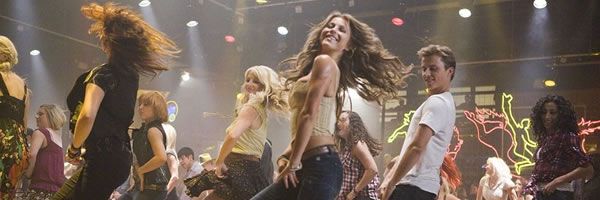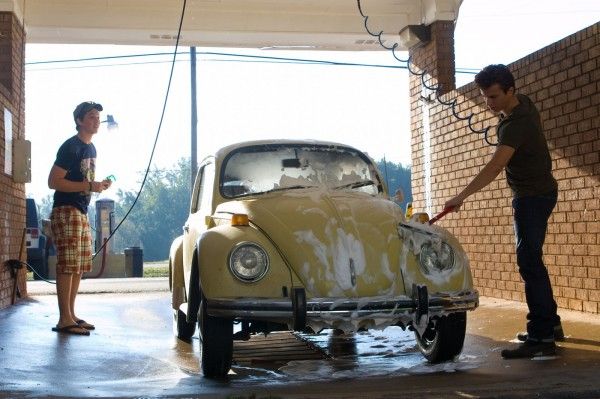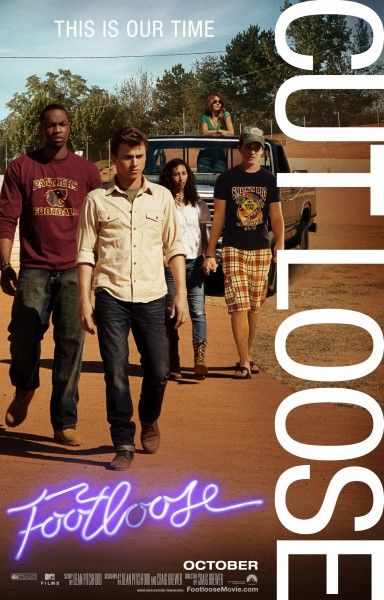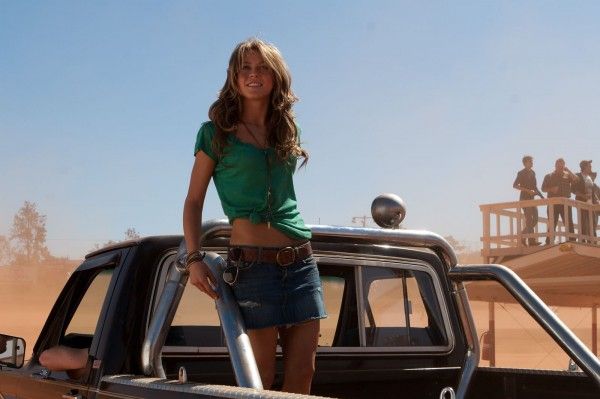The original Footloose is a charming relic from the 1980’s. Not a great film, it has the premise that there is a town where dancing is outlawed (based on a slightly true story). It’s a narrative hook that wouldn’t be out of place in a Mickey Rooney film, but is a good (safe) way to give teen rebels a cause. Craig Brewer - director of Hustle and Flow and Black Snake Moan - was chosen to direct the remake, and it’s a pleasant surprise to find out that he loved the original. So much so that his remake takes much from the original and updates it only slightly. As such it’s a fairly straight ahead remake; there aren’t too many narrative changes, but his work adds modest improvements across the board. Kenny Wormald, Julianne Hough and Dennis Quaid star in the film, and our review of Footloose on Blu-ray follows after the jump.
Ren McCormack (Wormland) is forced to move from Boston to the small town of Bomont, Georgia after his mother dies. The big city boy finds himself in a completely different world, and has to accept the southern hospitality of his aunt and uncle (Kim Dickens, Ray McKinnon). His uncle gives him a beat up Volkswagen as a gift, though Ren has to fix it up himself, and he quickly comes to realize that the town has a law against dancing (and frowns upon loud music). This version tones down some of the big city vs. small city stuff, and mostly just focuses on Ren as the outsider.
Once he gets to school he meets and immediately becomes friends with Willard (Miles Teller), there he also gets to know Ariel (Hough), the daughter of the town’s preacher Rev. Shaw Moore (Quaid). Her brother died in the accident that caused the town to ban dancing, and as a teenager she’s turned into a hellion. She’s dating race car driver Chuck Cranston (Patrick Flueger), but she has a connection to Ren and it’s undeniable.
Ren is frustrated with the town (which leads to this film’s version of the angry dance), and feels alienated at school where he’s set up to have pot on him, while Shaw also blames Ren for an incident when Chuck hits Ariel. There’s some life lessons to be learned, and Ren decides the only way to change things is to go to city council and see if he can’t get the law against dancing revoked.
Watching this version back to back with original doesn’t really help as they are very much the same film. What Brewer did in adapting it is streamline some of the narrative. In the original Ren’s mom comes with him, here he’s lost her to leukemia. It also makes his uncle into a real character, and he doesn’t come home to a family that hates him (which is nice). Brewer’s film is warmer that way. And the law against dancing is something that is the narrative hook, but it’s obvious the kids don’t care about it – Ren’s protest is more about proving that he’s a decent young man than it is about changing a law. Brewer adds a little bit more dancing (though the scene in the drive-in is very similar to a scene in the original), but he sticks to the main beats of the original, down to using most of the same soundtrack (though mostly covers, fittingly).
In that way it’s easy to compare and contrast. Here the dancers are that much better, and Ziah Colon’s turn as Rusty – Ariel’s best friend and Willard’s love interest – has a similar kick as Sarah Jessica’ Parker’s turn in the same role. Dennis Quaid is a great actor, but he can’t match John Lithgow’s haunted specter in the original – the scene where Lithgow shows up to see his daughter breaking the law is that much stronger in the 80’s version - but Quaid’s not on autopilot, and he’s a good choice. Andie MacDowell plays the reverend’s wife, and though she’s not the powerhouse that Diane Weist is, she does fine work. And though Chris Penn was great as Willard in the original, I’d give the edge to Teller’s performance – perhaps he’s just more naturally funny and inviting a performer than Penn.
As for the leads, Kenny Wormald acquits himself well. He gets the right mixture or self-possession and humility, and perhaps his nervousness in taking on a lead role works well for the character. If there’s a problem with the film it’s that Julianne Hough can’t convey the same sort of damage that Lori Singer had in the original. You believe that Singer might be suicidal, but Hough doesn’t have the same frailty, and she can’t convey the same sort of self-abuse as effectively. She’s just too strong for the role.
But Brewer knows how to make a party movie, and like all of his films, this is a crowd pleasing effort that’s fun to sink into. If you love the original, then this may just feel like a modern redress – and it is, but it works just as well. And that’s good enough.
Paramount’s Blu-ray of Footloose also includes a DVD and digital copy. The film is presented in widescreen (2.35:1) and in DTS-HD 5.1 Master Audio, and it look stellar with Amy Vincent’s cinematography well represented by the disc. The supplements kick off with Craig Brewer’s commentary, and he’s one of the best commentarians we have these days. He’s smart about talking about the film, and reveals anecdotes from the shooting, and offers advice to young filmmakers about how he shot it. “Jump Back: Re-Imagining Footloose” (15 min.) is the making of, which is followed by “Everybody Cut: The Stars of Footloose” (13 min.), which highlights the cast. These are pretty standard. “Dancing with the Footloose Stars” (13 min.) talks to the choreography, while there are also five deleted scenes (7 min.) with optional commentary – there’s one scene that sucks to see it cut, but you can tell it interfered with pacing. There are also three music videos, and a Footloose rap (2 min.) that recounts the film’s story.




